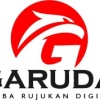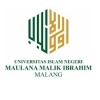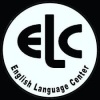THE ANONYMOUS TEACHERS’ FACTORS OF ASSESSING PARAGRAPH WRITING
Abstract
Scoring writing is very subjective and mainly relies on a lot on teachers as raters. They play a significant role to meticulously carry out writing evaluations to adjudicate the linguistic and rhetorical features of their students' written responses. Based on the previous studies, the teachers’ factors of knowledge of basic writing assessment, efficacy in selecting assessment method, efficacy in scoring accuracy, and perception in practicing writing assessment can contribute a lot to the quality in teachers’ writing assessment. The 56 junior high school English teachers having at least five years of teaching experience, was invited to fill out the questionnaire and scoring paragraph writing. The results were examined with Multiple Linear Regression analysis. Amongst these factors, only the efficacy in scoring writing accuracy predicts the teachers’ scoring paragraph writing.
Full Text:
PDFReferences
Anugerahwati, M., & Saukah, A. (2010). Professional competence of English teachers in Indonesia : a profile of exemplary teachers. Indonesian Journal of English Language Teaching, 6(2), 107–119.
Baker, K. M. (2016). Peer review as a strategy for improving students’ writing process. Active Learning in Higher Education, 17(3), 179–192. https://doi.org/10.1177/1469787416654794
Bandura, A. (2006). Guide for Constructing Self-Efficacy Scales. In Self-Efficacy Beliefs of Adolescents, (pp. 307–337). Information AgePublishing. https://doi.org/10. 1080/09243453. 2012. 680892
Barkaoui, K. (2011). Effects of marking method and rater experience on ESL essay scores and rater performance. Assessment in Education: Principles, Policy and Practice, 18(3), 279–293. https://doi.org/10.1080/0969594X.2010.526585
Borowski, A., Carlson, J., Fischer, H. E., Henze, I., Gess-Newsome, J., Kirschner, S., & Van-Dal, J. (2011). Different Models and Methods To Measure Teachers’Pedagogical Content Knowledge. In Bruguière, Catherine, Tiberghien, Andrée, Clément, & Pierre (Eds.), ESERA 2011 Conference: Science learning and Citizenship (pp. 1–12). European Science Education Research Association. Retrieved from http://vbn.aau.dk/files/78578296/ebook_esera2011_Strand13.pdf#page=29
Brown, D. (2004). Teaching by principles.
Chesnut, S. R., & Burley, H. (2015). Self-efficacy as a predictor of commitment to the teaching profession: A meta-analysis. Educational Research Review, 15, 1–16. https://doi.org/10.1016/j.edurev.2015.02.001
Djoub, Z. (2017). Revisiting EFL assessment. https://doi.org/10.1007/978-3-319-32601-6
Friedman, I. A., Farber, B. A., & Taylor, P. (2011). Professional predictor of teacher burnout as a. most, 86(1), 28–35.
Ghahari, S., & Sedaghat, M. (2018). Optimal feedback structure and interactional pattern in formative peer practices: Students’ beliefs. System, 74(1), 9–20. https://doi.org/10.1016/j.system.2018.02.003
Ghanbari, N., & Barati, H. (2014). Iranian EFL writing assessment : the agency of rater or rating scale ?, 4(2), 204–228.
Gonzalez, E., Trejo, N., & Roux, R. (2017). Assessing EFL university students’ writing: A study of score reliability. Revista Electronica de Investigacion Educativa, 19. https://doi.org/10.24320/redie.2017.19.2.928
Goodwin, S. (2016). A Many-Facet Rasch analysis comparing essay rater behavior on an academic English reading/writing test used for two purposes. Assessing Writing, 30, 21–31. https://doi.org/10.1016/j.asw.2016.07.004
Jiang, J. Y., Sporte, S. E., & Luppescu, S. (2015). Teacher Perspectives on Evaluation Reform. Educational Researcher, 44(2), 105–116. https://doi.org/10.3102/0013189x15575517
KEMENDIKBUD. (2016). Panduan Literasi SMP. Jakarta.
KEMENDIKBUD. (2017). Silabus Bahasa Inggris SMP Revisi 2017.
Mao, Z., & Jiang, L. (2018). Classroom Writing Assessment and Feedback in L2 School Contexts by Icy Lee ( review ) (Vol. 73). https://doi.org/10.3138/cmlr.599
Meissel, K., Meyer, F., Yao, E. S., & Rubie-Davies, C. M. (2017). Subjectivity of teacher judgments: Exploring student characteristics that influence teacher judgments of student ability. Teaching and Teacher Education, 65, 48–60. https://doi.org/10.1016/j.tate.2017.02.021
Osborne, J., & Walker, P. (2014). Just ask teachers: BUILDING expertise, trusting subjectivity, and valuing difference in writing assessment. Assessing Writing, 22, 33–47. https://doi.org/10.1016/j.asw.2014.06.002
Pas, E. T., & Bradshaw, C. P. (2014). What affects teacher ratings of student behaviors? the potential influence of teachers’ perceptions of the school environment and experiences. Prevention Science, 15(6), 940–950. https://doi.org/10.1007/s11121-013-0432-4
Rahayu, E., & Rahayu, E. (2019). Teacher’s cognitive and affective. Premise Journal, 8(1), 102–116.
Ratnawati, R., Faridah, D., Anam, S., & Retnaningdyah, P. (2018). Exploring academic writing needs of Indonesian EFL undergraduate students. Arab World English Journal, 9(4), 420–432. https://doi.org/10.24093/awej/vol9no4.31
ReadWriteThink. (2004). Rubric for a narrative writing piece.
Roscoe, R. D., Allen, L. K., Johnson, A. C., & McNamara, D. S. (2018). Automated writing instruction and feedback: Instructional mode, attitudes, and revising. Proceedings of the Human Factors and Ergonomics Society, 3, 2089–2093. https://doi.org/10.1177/1541931218621471
Royal-Dawson, L., & Baird, J. A. (2009). Is teaching experience necessary for reliable scoring of extended english questions? Educational measurement: issues and practice, 28(2), 2–8. https://doi.org/10.1111/j.1745-3992.2009.00142.x
Skaalvik, E. M., & Skaalvik, S. (2014). Teacher self-efficacy and perceived autonomy: relations with teacher engagement, job satisfaction, and emotional exhaustion. Psychological Reports, 114(1), 68–77. https://doi.org/10.2466/14.02.PR0.114k14w0
Soltero-González, L., Escamilla, K., & Hopewell, S. (2012). Changing teachers’ perceptions about the writing abilities of emerging bilingual students: Towards a holistic bilingual perspective on writing assessment. International Journal of Bilingual Education and Bilingualism, 15(1), 71–94. https://doi.org/10.1080/13670050.2011.604712
Statistik, B. P. (2014). Teacher self-efficacy: substantive implications and measurement dilemmas. Katalog BPS, XXXIII(2), 81–87. https://doi.org/10.1007/s13398-014-0173-7.2
Stojiljković, S., Todorović, J., Đigić, G., & Dosković, Z. (2014). Teachers’ self-concept and empathy. Procedia - Social and Behavioral Sciences, 116(February), 875–879. https://doi.org/10.1016/j.sbspro.2014.01.313
Trace, J., Meier, V., & Janssen, G. (2016). “I can see that”: Developing shared rubric category interpretations through score negotiation. Assessing Writing, 30, 32–43. https://doi.org/10.1016/j.asw.2016.08.001
Uyanık, G. K., & Güler, N. (2013). A study on multiple linear regression analysis. In Procedia - Social and Behavioral Sciences (Vol. 106, pp. 234–240). https://doi.org/10.1016/ j.sbspro.2013.12.027
Wang, J., Engelhard, G., Raczynski, K., Song, T., & Wolfe, E. W. (2017). Evaluating rater accuracy and perception for integrated writing assessments using a mixed-methods approach. Assessing Writing, 33(March), 36–47. https://doi.org/10.1016/j.asw.2017.03.003
White, K. M., & Hall, A. H. (2014). Examining teachers ’ perceptions of effective writing strategies and barriers to implementation. Clemson University TigerPrints. Retrieved from https://tigerprints.clemson.edu/eugene_pubs/24
Wilson, J., & Roscoe, R. D. (2019). Automated writing evaluation and feedback: multiple metrics of efficacy. Journal of Educational Computing Research. https://doi.org/10.1177/0735633119830764
Wiseman, C. S. (2012). Rater effects: Ego engagement in rater decision-making. Assessing Writing, 17(3), 150–173. https://doi.org/10.1016/j.asw.2011.12.001
Yuan, J., & Kim, C. M. (2018). The effects of autonomy support on student engagement in peer assessment. Educational Technology Research and Development, 66(1), 25–52. https://doi.org/10.1007/s11423-017-9538-x
DOI: https://doi.org/10.18860/jeasp.v3i1.9208
Refbacks
- There are currently no refbacks.

This work is licensed under a Creative Commons Attribution-ShareAlike 4.0 International License.







Editorial Office:
Pusat Pengembangan Bahasa
Program Khusus Pengembangan Bahasa Inggris (PKPBI)
Universitas Islam Negeri Maulana Malik Ibrahim Malang
Gedung C lantai 1
Jl. Gajayana No 50 Kota Malang, Jawa Timur, Indonesia
Kode Pos 65144, Telp/Fax : (0341) 570872
Email: jeasp@uin-malang.ac.id
JEASP : Journal of English for Academic and Specific Purposes is licensed under a Creative Commons Attribution-ShareAlike 4.0 International











